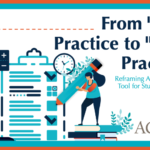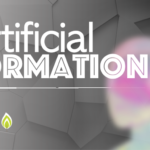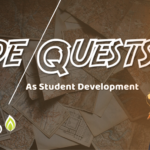My desk is currently covered with stacks of paper. Event requests and charter applications for approval, notes from and for student meetings, reference letters to be mailed, invoices to be paid, and on and on. I have my computer in my lap because there is no room on the desk. It’s “wartime”.
In C.S. Lewis’s well-known collection of addresses entitled The Weight of Glory there is a lecture entitled “Learning in War-Time”. In this lecture, Lewis defends the importance of continuing to pursue knowledge even while many of his students’ peers are fighting The Great War. He argues that while learning may seem a frivolous luxury next to the grim weight of war, in reality, he states, “the war creates no absolutely new situation; it simply aggravates the permanent human situation so that we can no longer ignore it” (Lewis, 2001, p. 53). Because all of humanity is ultimately headed towards eternal ends, the argument goes, war only serves to bring that reality to the fore. By this logic, learning should be valued no less in war-time than in peace-time.
While the academic year for student development professionals is not literal war-time, the barrage of tasks and relationships creates something of a figurative war-time. The demands of our work mount assaults against normalcy and routine. A closed door quickly becomes an open door for a student in need. A quiet week can quickly turn into the craziest in recent years. All this while administrative tasks attack both our flanks. It is easy in these situations to feel as though all our supplies are depleted and reinforcements are unlikely to come. We may identify with Bilbo Baggins, “. . . [feeling] thin, sort of stretched, like butter scraped over too much bread” (Tolkien, 2012, p. 32).
It is easy to see the value of such learning when time is plentiful and spirits are high (read: summer), but what about war-time? Taking Lewis’s argument a step further, I want to suggest that it is in these moments, the heat of the semester moments, that we need to learn most. We need to press into the fray and mount our counter-assault through regular and strategic professional development. If we wait for “the right moment” throughout the year, the tyranny of the urgent will ensure we never get around to this important task and, before long, our forces will be diminished.
Taking time to learn during war-time re-establishes the supply lines in our time of need. It does so not by building up our war chest of knowledge, but instead by calling us to revel in the all-knowing God. As we drink from infinite sources of knowledge we will be captivated by a world of truth that begins and ends with our glorious God. We will recognize our finitude and God’s infinitude. We will be humbled as we recognize any truth we offer a student was first God’s truth. These are good things, for in our liminal space—where we begin to understand our position in the cosmos of God—we begin to recognize the truth of the human situation that was there all along—an utter dependence upon God.
I think you’ll find, as I have, that when taking the time to “learn in war-time” student “interruptions” become less interrupting, and we can see them truly as our work. When we have taken the time to fill up our reservoir of wisdom and truth, we will be all the readier to pass it along to the students we love. Meetings that were once draining and exhausting will become opportunities to explore the realist reals and the truest truths. In this way, learning in war-time is counter-intuitive. By adding another task to our plate, we can actually be more energized in our work.
With all that there is to do, with all the stacks of paper and mounting responsibilities, failing to take time to learn would be like forgetting to feed your soldiers on the eve of a major assault. With no fuel in their bellies, the soldiers would be forced to fight a battle on two fronts—war and hunger. I pray you’d heed my warning: don’t go into battle on an empty stomach—defend time for that which will sustain you.
IDEAS FOR LEARNING IN WAR-TIME
So, what could this look like? For starters, we must arm ourselves with the sword of the Spirit. This can only be done through regular time in the Word and in fellowship with believers. As we do so, we will, habituate the desires of our heart towards the very heart of God (Smith). These are the primary ways we ought to learn. Once in place, there are number of other ways to develop as professionals. Below are some suggestions for how to “learn during war-time.”
Discover new ways to engage God’s Word. If reading God’s Word seems more like a chore than a daily delight, try switching up how you engage it. If you typically read a single passage at a time, try reading large swaths of Scripture and look for major themes. If you’ve never done an inductive study on a text, try digging in deep to a verse and its surrounding context. Or if you’re always flipping between different books of the Bible, consider reading the same passage of scripture for a month to see how it proves to be living and active all 30 plus days.
Create a Reading List. Explore and read what interests you. If you’re interested in what you’re learning, you’ll be more likely to turn to it amidst a busy week.
Read widely. Don’t feel like professional development ought to limit your reading to your specific area (e.g. student development theory, responding to mental health, leadership development, etc…). Take time to read fiction, poetry, or perhaps something out of your normal discipline. When you do, your world is expanded, your understanding of humanity deepens, and I suspect you’ll find you have resources to connect and respond with/to a wider range of students and situations.
Block off time. We’ve all seen tennis balls and rice to demonstrate the importance of setting priorities. (if you put the rice into the jar first, the tennis balls won’t fit, but if you put the tennis balls in first, the rice settles in around the balls and all of it can fit). In the same way, if we fail to block off time before the needs of the week are apparent, there will be no time left for professional development. But, if we prioritize time for professional development from the outset, you’ll be surprised at how little needs to be sacrificed.
Read biographies. As you spend time reading about people you respect, you will be drawn to imitate their wisdom.
Seek out mentors. Take time to seek out professional mentors who can speak truth into your work, even while you’re amidst it. As you do, you’ll begin to imitate them.
FOR FURTHER READING
Bible
Exodus 36–39 — “Making”
While these chapters are often skimmed due to their repetitive nature, they offer us a beautiful picture of the body. In these chapters, as the Lord and Moses call out the specific skills of the people, we see we are given skills for purposes beyond ourselves.
2 Corinthians 13:10 — “For Building up and Not for Tearing Down”
Paul offers this verse towards the end of the book as an expression of authority. From it we can glean some wisdom on how authority can be best used.
Titus — “Putting Theory into Practice”
The form of book of Titus is shaped like an hourglass in that it starts with practical out workings of the gospel, which funnels to the gospel itself, then flairs out again to the practical implications. In it, Paul gives one of the clearest articulations of the gospel and how we ought to live in light of it.
Leadership
Nouwen, H. J. M. (1993). In the Name of Jesus: Reflections on Christian Leadership. New York: Crossroad Publishing Co
This book is a classic on leadership—if you haven’t yet read it, I would highly recommend you start here. The book is a quick read and provides a vision for what leadership looks like in the Kingdom of God. The book is Christ-centered and intensely practical. Our office often gives this book to student leaders to read and discuss at the start of the year.
Crouch, A. (2013). Playing God: Redeeming the Gift of Power. Downers Grove, IL, United States: Inter-Varsity Press.
This book investigates the origins of power as well as how to wield it wisely. Crouch argues that we have an opportunity to reflect the nature of God in how we use our influence. He investigates this first in theory, then in practice. If time doesn’t allow for a full reading (the book is long), the introduction and first two chapters get at the heart of the argument.
Harvard Business Review (2015). HBR’s 10 Must Reads on Emotional Intelligence. United States: Harvard Business Review Press.
This collection of articles from the Harvard Business Review on Emotional Intelligence lays out what emotional intelligence actually is, what benefits it provides, and how it can be learned. I’ve used these articles with students who are leading other students to help them begin to learn how to foster an environment where the team can “take on the perspective of another.”
Education
Palmer, P. J. (2007). The Courage to Teach: Exploring the Inner Landscape of a Teacher’s Life (10th ed.). San Francisco, CA: Jossey-Bass Inc.,U.S.
A classic text on the joys and struggles of teaching. Starting at the heart of the teacher, Parker works outward to eventually offer a model of education that is subject-centered and stems from a community of truth.
Smith, J. K. A. (2009). Desiring the Kingdom: Worship, Worldview, and Cultural Formation (4th ed.). Grand Rapids, MI: Baker Academic, Div of Baker Publishing Group.
If you have yet to read this book, I’d encourage you to move it to the top of your list. This book will transform the way you do your job. In short, Jamie Smith argues that our actions are not just things that we do, but they are things that do something to us. In light of that, we ought to be mindful of what our actions are making us to be. To what kingdom are you becoming a citizen? I cannot laud this book enough. The book might look dense at first, but it reads easy once you’re into it. If you do decide to read it and would like to discuss it further, shoot me an email!
Poetry
A quick note: Poetry can be daunting at first—many fear incorrectly interpreting it. I’d encourage you not to worry, and just enjoy it. Poetry is an art form that seeks to evoke a sense of a thing rather than the thing itself. The poet uses fewer words not to cloud a concept, but instead to get at the heart of it.
Foster, B. (2011). The Garbage Eater: Poems. Evanston, IL: TriQuarterly Books/Northwestern University Press.
A beautiful collection of modern poetry with vivid imagery and emotion. My favorites include, “Nights of Fireworks, Days of Drought” and “The Snow Day.”
Hopkins, G. M. (1974). Poems and Prose of Gerard Manley Hopkins (10th ed.). Baltimore, MD: Penguin Group (USA).
From this collection, I’d specifically recommend “As Kingfishers Catch Fire.” It is a masterful poem that asks and explores the question, “What does it mean to be oneself.”
On Reading
Jacobs, A. (2011). The Pleasures of Reading in an Age of Distraction. New York: Oxford University Press.
If my article didn’t convince you of the importance or joys of reading/learning, this book will. Alan Jacobs makes a case for the joys of reading, while cautioning against the desire to “have read.”
Fiction
Lowry, L. (2014). The Giver. United States: Houghton Mifflin Harcourt.
You likely read this book in elementary school. Even if you have, I’d encourage you to pick it up again with a more mature set of eyes. Lowry helps us explore the logical ends to the ideals of “same-ness” and “difference.” A profound work that says more than a first glance at its elementary writing might indicate.
Tolkien, J. R. R. (2014). The Silmarillion. United States: Mariner Books.
While I’d encourage only the most devout of Tolkien fans to read the whole of this book of history, the first chapter “Ainulindalë” is accessible, beautiful, and worth the read. The chapter is, in essence, the creation story of middle earth (the mythical land in which The Lord of the Rings takes place). There are components that might turn non-enthusiasts off at first but I’d encourage you to wade through it. Having done so, you will have experienced a beautiful discussion on the nature of power and how it can be corrupted.
REFERENCES
Lewis, C. S. (2001). The Weight of Glory and Other Addresses. San Francisco: HarperCollins Publishers.
Tolkien, J. R. R. (2012). The Fellowship of the Ring. Boston: Mariner Books/Houghton Mifflin Harcourt.






